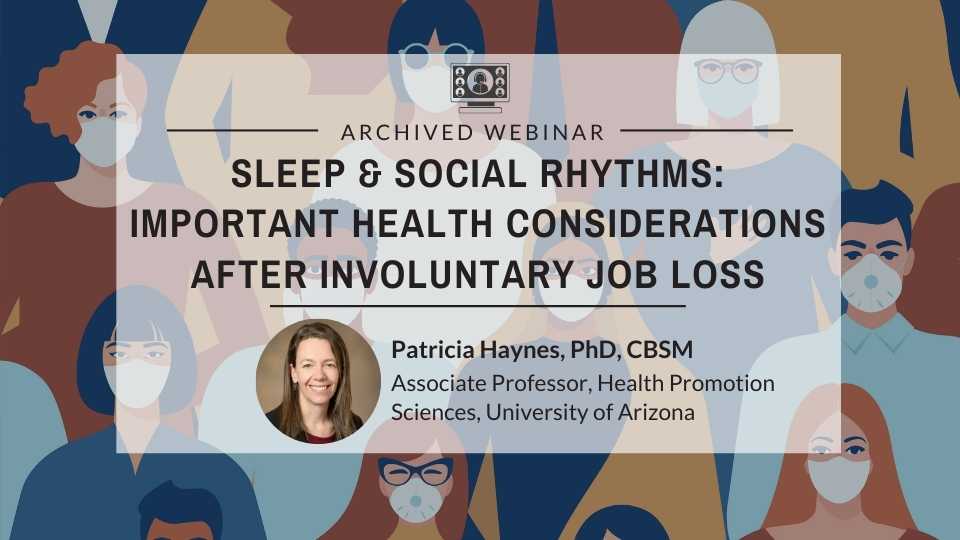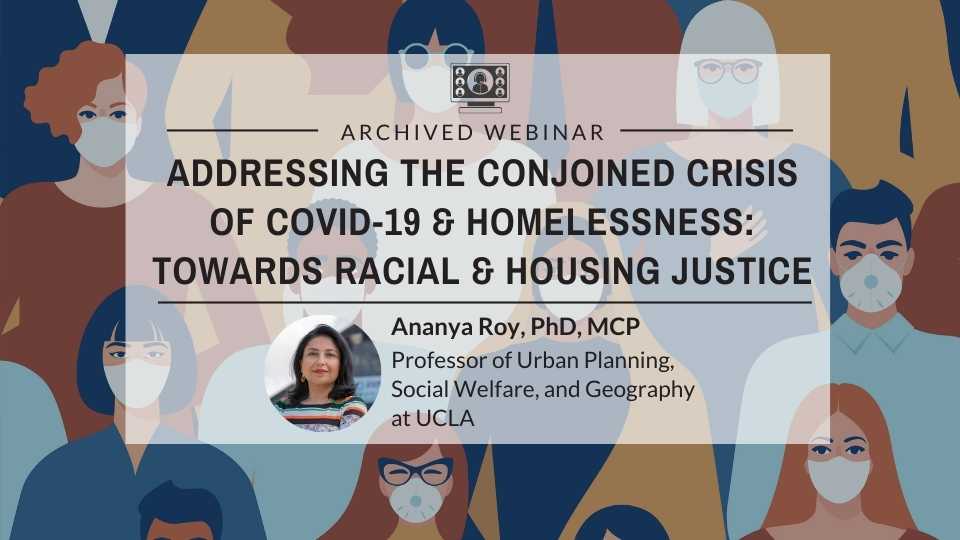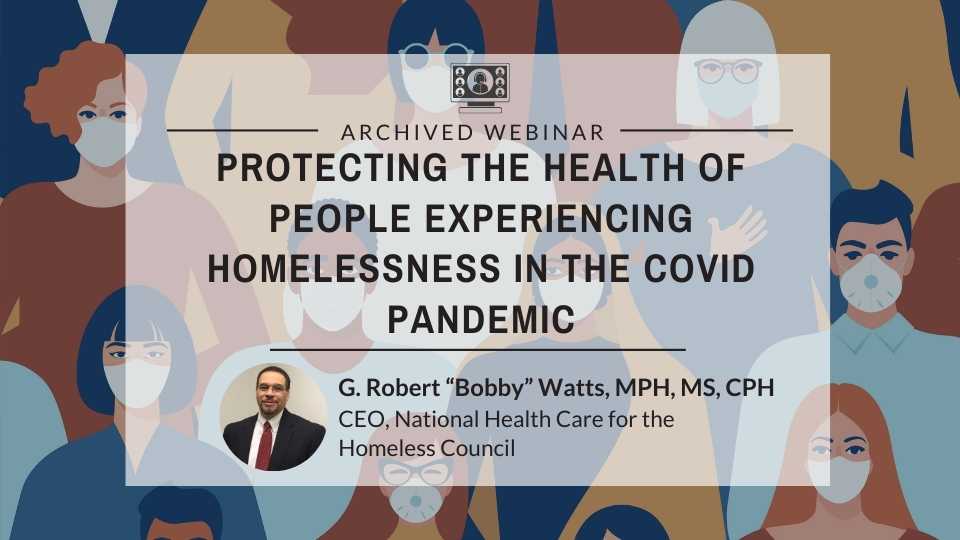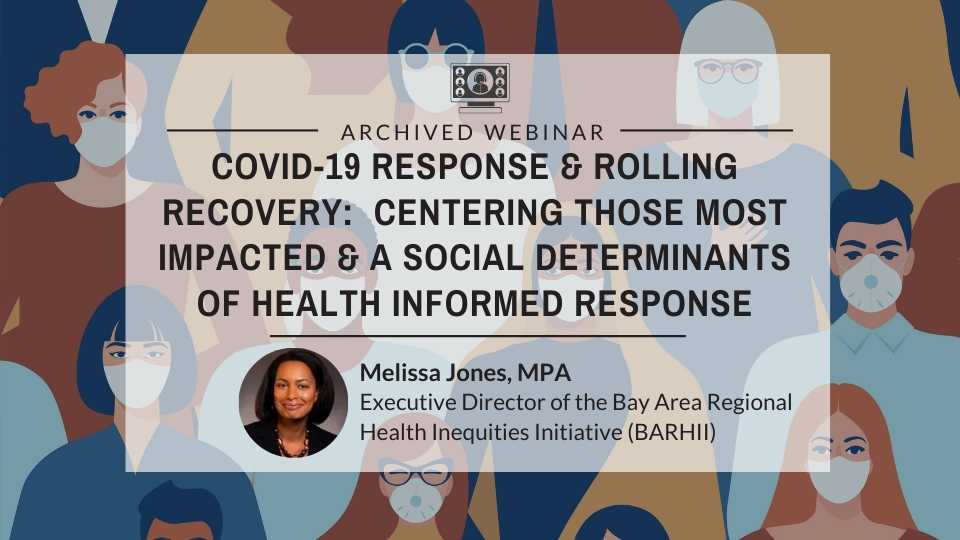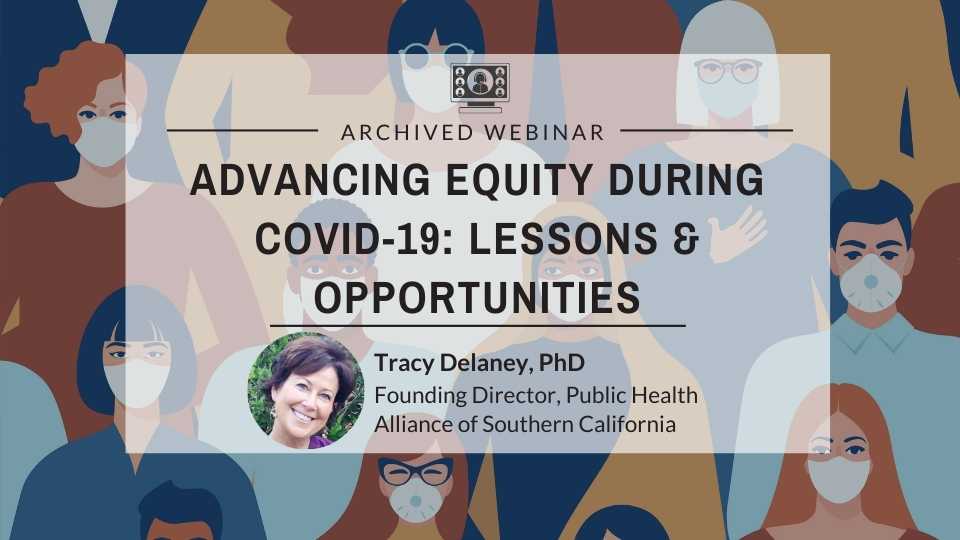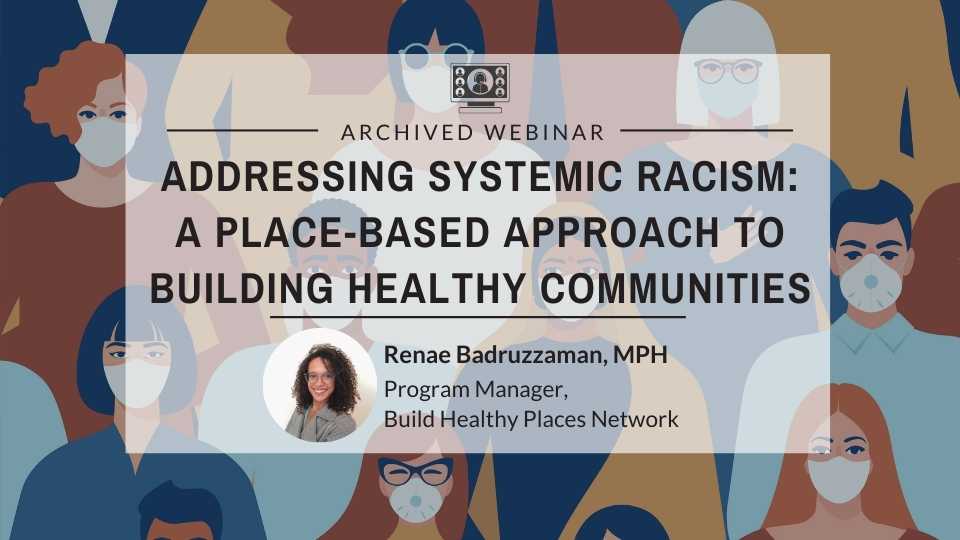Dr. Haynes will review early findings from the NIH-funded Assessing Daily Activity Patterns through occupational Transitions (ADAPT) study. Also, she will discuss why the promotion of sleep and consistent daily routine might be especially salient for individuals lacking daily time structure imposed by regular employment.
Learning Objectives:
- Define social rhythms
- Apply information about sleep and social rhythms to stressful life events and experiences associated with the COVID-19 pandemic
- Give examples of behavioral interventions informed by chronobiology
Duration: 34 minutes
Continuing Education Information: 0.5 CECH for CHES
Format: Web-based training, Self Study
Originally Recorded: 08/2020
Presenter: Patricia Haynes, PhDDr. Haynes is an associate professor in the Department of Health Promotion Sciences at the Mel and Enid Zuckerman College of Public Health at the University of Arizona. She is a licensed clinical psychologist and behavioral sleep medicine specialist with expertise in cognitive behavioral therapies for PTSD, depression, and insomnia. Her research examining sleep and stress has been funded by the National Institutes of Health, the Department of Defense, and the American Sleep Medicine Foundation. She has authored multiple publications in the area of traumatic stress, and she has substantial experience training mental health providers in the areas of sleep and stress recovery. Currently, she has a well-established partnership with the Tucson Fire Department, where she provides services to fire service members and assists in the establishment of behavioral health policies and programs designed to foster firefighter mental health and stress resiliency.


